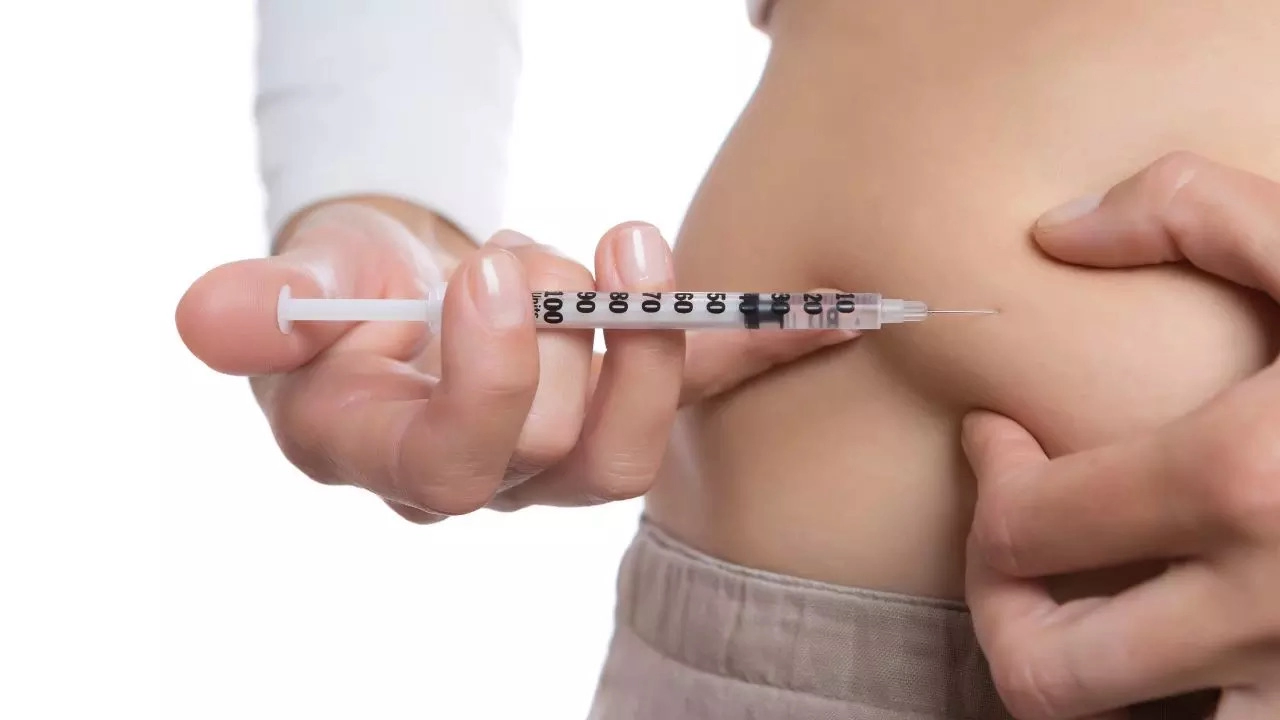Debosmita Ghosh • 03 Oct 2024
People With Diabetes May Soon Be Able To Take An Injection To Prevent Sudden Blood Sugar Drop

Researchers Develop Injectable That Can Prevent Blood Sugar Drops In Diabetic People
A team of researchers said that a new injectable solution to prevent and treat hypoglycemia conditions in people with diabetes. The study was published in the journal ACS Central Science.
Hypoglycemic is a condition wherein blood sugar levels drop below normal, typically below 70 mg/dL. The condition is most common in people with diabetes who use insulin or other medications to lower blood sugar. Symptoms of the condition include shakiness, sweating, dizziness, confusion and in severe cases, seizures or unconsciousness.
Causes of hypoglycemia could be skipping meals, excessive physical activity or taking too much diabetes medication. Immediate treatment for hypoglycemia is consuming fast-acting carbohydrates like juice or glucose tablets. If left untreated, hypoglycemia can be life-threatening, therefore, it’s important to monitor blood sugar levels and manage them carefully to prevent episodes.
According to the team, if glucose levels plunge too low, people can experience hypoglycemia, which can lead to dizziness, cognitive impairment, seizures or comas.
Researchers report encapsulating the hormone glucagon. Glucagon is a hormone that signals the liver to release glucose into the bloodstream. It's typically given by injection to counteract severe hypoglycemia in people who have diabetes. While an emergency glucagon injection can correct blood sugar levels in about 30 minutes, formulations can be unstable and insoluble in water. In some cases, the hormone quickly breaks down when mixed for injections and clumps together to form toxic fibrils. Additionally, many hypoglycemic episodes occur at night, when people with diabetes aren't likely to test their blood sugar.
To improve glucagon stability and prevent hypoglycemia, Andrea Hevener and Heather Maynard looked to micelles: nanoscale, soap-like bubbles that can be customized to assemble or disassemble in different environments and are used for drug delivery.
They developed a glucose-responsive micelle that encapsulates and protects glucagon in the bloodstream when sugar levels are normal but dissolves if levels drop dangerously low.
To prevent hypoglycemia, the micelles could be injected ahead of time and circulate in the bloodstream until they are needed. In mouse trials, the nanocapsules activated when blood sugar levels dropped dangerously low and quickly restored glucose levels.
In lab experiments, the researchers observed that the micelles disassembled only in liquid environments that mimicked hypoglycemic conditions in both human and mice bodies: less than 60 milligrams of glucose per deciliter.
Next, when mice experiencing insulin-induced hypoglycemia received an injection of the specialized micelles, they achieved normal blood sugar levels within 40 minutes.
From additional toxicity and biosafety studies in mice, the researchers note that empty micelles didn’t trigger an immune response or induce organ damage.
The researchers said, “While more studies are needed, the researchers say their proof-of-concept is a first step toward a new on-demand and effective method for preventing or mitigating extremely low blood sugar levels.”
(With inputs from agencies)
Get Latest News Live on Times Now along with Breaking News and Top Headlines from Health and around the world.